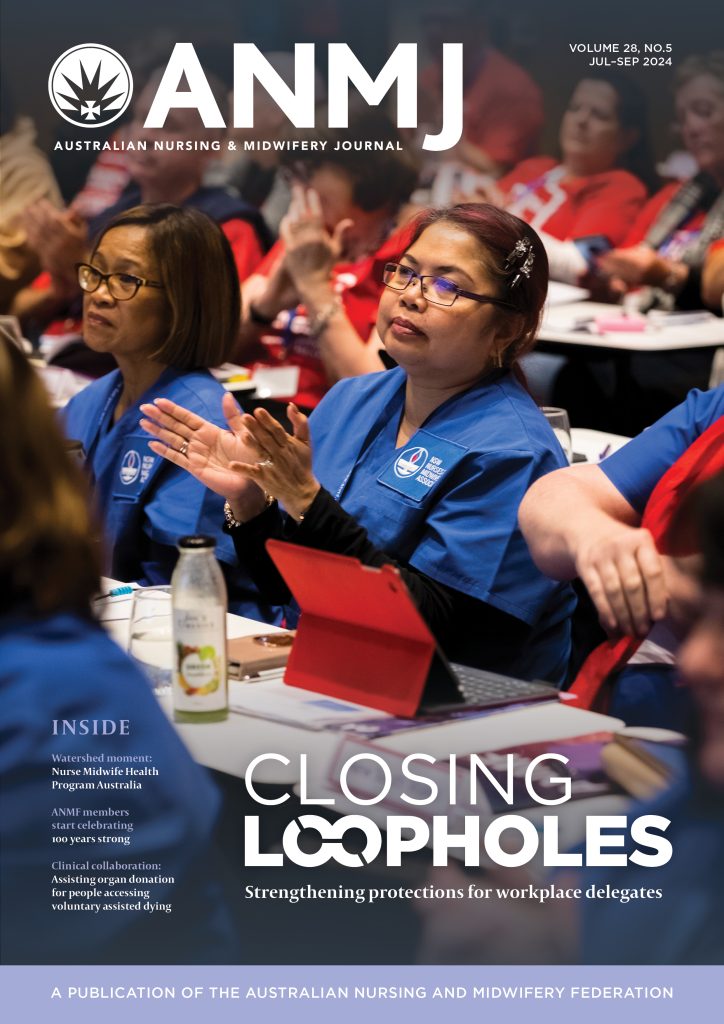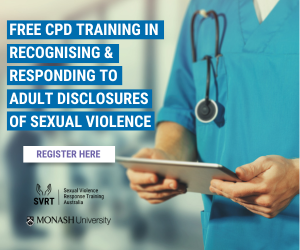Kerry Patford, Chief Nurse for the McGrath Foundation, has worked in breast care nursing for more than two decades.
For as long as she can remember, breast cancer was “always part of the conversation” due to a strong family history. Then, while on maternity leave with her second child, a close friend was diagnosed with the disease, which touches 1 in 7 Australian women, and about 1 in 500 men, during their lifetime.
As nurses do, Kerry became actively involved in the care of her friend as she navigated her breast cancer journey. She kept spruiking the meaningful support of a breast cancer nurse, a role Kerry at the time didn’t even know existed.
It encouraged her to do some digging, which led to breast care nurse training, and the rest is history. In 2009, Kerry would become one of the original McGrath Breast Care Nurses, and later on rise to Chief Nurse. McGrath Breast Care nurses provide physical, psychological and emotional support and care to women and men experiencing breast cancer, and their families, from diagnosis right throughout treatment.
When she began working in beast care nursing, the standard Model of Care was based on delivering five episodes of care during the first 12-weeks of treatment, says Kerry. But considerable changes have been made over the years in line with advances in breast cancer treatments. Since 2019, the foundation has released two new McGrath Models of Care, projects which Kerry has been integral in developing, that follow patients from diagnosis, right through to a wave of new available treatments, including immunotherapy.
“When the first Model of Care was introduced, basically surgery, chemotherapy, radiotherapy, and a little bit of endocrine therapy were the main focus,” Kerry recalls.
“Now, we have different sorts of surgery. We have a broader range of chemotherapy, and targeted therapies. Even the radiation’s changed. It’s about making sure that a person is not just only well during the intense phases of treatment, but that they’re the best version of themselves when treatment’s finished, as well as leaving them with as little toxicities and adverse events as possible. We also look at issues such as fear of recurrence, sexuality, and fertility.”
As the McGrath Foundation’s Chief Nurse, Kerry supports and mentors state and territory Clinical Leads across Australia. More than 200 McGrath Breast Care Nurses work in communities across the country, with 127,000 families supported since 2005.
“I have a real passion for fostering excellence in nursing,” Kerry says.
“Nursing has been incredibly good to me and I just love seeing nurses thrive, so that their patients can thrive.
“Part of my role is creating models of care that they [nurses] can use in practice, within the practicalities of breast care nursing. So encouraging the use of consistent information, frameworks, referral pathways, and making sure that the breast care nurses are an integral part of the multidisciplinary team caring for people with breast cancer.”
Every year, October marks national Breast Cancer Awareness Month, with the aim to raise awareness about the disease and the importance of getting screened, offer support, and advocate for action.
“Our message is really simple,” Kerry says.
“Look, feel and learn. So, look at your breasts to see if there’s any abnormalities there. Feel if there’s any changes that you notice. And learn what is normal for you. And, most importantly, as soon as you notice anything different, listen to your gut and please go and get checked out. If your gut is telling you something’s not right, generally, it’s pretty spot on.”
Looking ahead, Kerry says the McGrath Foundation is well on track to reach its goal of having 250 Breast Care Nurses by 2025.
“The reason for that is that we know there’s still one in five people with breast cancer that do not receive care,” she reveals.
“We want to make sure that everyone has access to a breast care nurse, regardless of where they live. I think one of the challenges for nurses, is that often we see a gap and try to fill it ourselves, and that’s not always sustainable. We need to make sure that we create models and pathways for patients that are sustainable, and create a workforce that has succession planning built-in, knowing that the nursing workforce is an ageing one.”
Over the past year, the McGrath Foundation has delivered over 10,000 hours of CPD to its nurses as part of its education program. It also encourages its workforce to keep an eye out for nurses who might consider becoming a breast care nurse, as last year, 18 scholarships were handed out to nurses to undertake graduate certificates in breast care nursing.
After working in breast care nursing for over 20 years, Kerry still loves the job, and hopes to drive more early career nurses into the field.
“I would really like to encourage people to have a look at oncology nursing. There’s a whole lot of work to do. People often say ‘it must be sad being a cancer nurse’. But, I can tell you, I think I laugh more in this job than I ever have. You really get to know the people and be part of their lives. And that’s something really special.”
To find out more, visit the McGrath Foundation here









